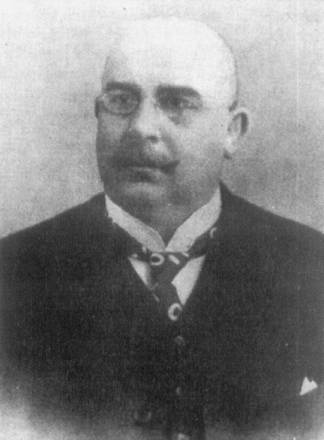Prominent Poles
Albert Wojciech Adamkiewicz M.D.(pathologist), discoverer

Born: August 11, 1850, Zerkow, Prussian partition of Poland
Died: October 31, 1921, Vienna, Austria
Early days. His father- Adolf- was a small-town doctor. In 1868 Albert graduated from high school in Rastenburg, Prussia (presently Ketrzyn, Poland) and the note on his high school report read, “he excelled in all subjects and possesses strong determination to achieve his life goals.” In 1868 he started studying medicine at University of Koenigsberg, Prussia (presently Kaliningrad, Russia).After 6 months he continued his studies at the University of Breslau, Prussia (presently Wroclaw, Poland) where he was a student-assistant to Professor Heidenhain, a renown physiologist. In 1870, during the Franco-Prussian war, he was drafted to the military service. In 1871 he resumed his studies, this time at the University of Wuerzburg, Bavaria (presently Wuerzburg, Germany) where he became a student-assistant to Professor von Recklinghausen and in 1872 won the first prize in a student competition and a title of MD. In 1873 he passed a state exam at the University of Breslau.
Career. In 1876 he got a position at Koenigsberg University. He moved the same year to Berlin to work at the Department of Nervous Illnesses at the Charite Hospital. From 1879 until 1892 he was the chief of General and Experimental Pathology at the Jagiellonian University in Cracow. His knowledge of Polish was weak but he had a reputation of being a very good teacher and experimentator. Adamkiewicz is remembered for his pathological examinations of the central nervous system. His research of the variable vascularity of the spinal cord was an important factor concerning modern clinical vascular surgery. He is credited with describing the major anterior segmental medullar artery, which is now known as the artery of Adamkiewicz. In 1889 he described the progressive paralysis of cranial nerves called later Garcias group. In the early 1890s Adamkiewicz published a series of articles claiming the discovery of a cancer-causing parasite he called Coccidium sarcolytus, as well as an anti-cancer serum. Further testing proved the serum a failure, and Adamkiewicz was severely criticized by the medical community at Jagiellonian University. Soon after he relocated to Vienna where he practiced medicine at Rothschild's Jewish Hospital but he was shunned by other researchers.
Main source
This article uses, among others, material from the Wikipedia article "Albert Wojciech Adamkiewicz" licensed under the GNU Free Documentation License. :
Wikipedia
supplemented with information from:
The Annals of Thoracic Surgery
Neurosurg Focus
Return to home page:
Prominent Poles
